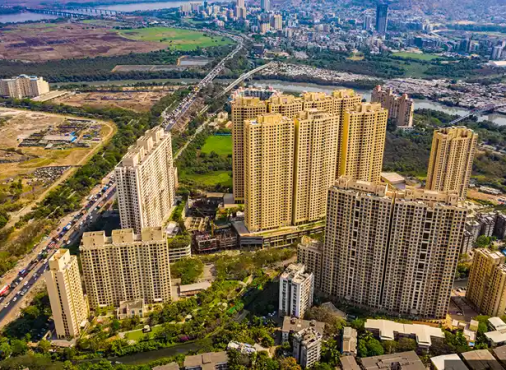Have you ever wished your home had automatic control over its settings, such as lighting or climate? These examples prove the concept of a smart home, which brings a high level of convenience and luxury into reality.
A smart home is more than a cool device; it’s a residence design that suits a number of personal activities to make daily activities simpler and more fun. In this blog post, we’ll explore how to create a smart home in India step by step.
Understanding Smart Home Technology
Smart homes work through a series of connections linking all the devices in use. This network is usually centralised by a main control from an equivalent unit or through a smartphone application, through which you can manage different things at home regardless of your location.
Smart home systems include sensors that capture information from the environment, controllers that process the information, and actuators that perform the functions that have been commanded by the controllers, such as lighting, climate control, security, and entertainment.

Essential Smart Devices
When decorating the house and planning how to construct a smart home, a few items are a must. These fundamental devices are prerequisites of home automation, which provides comfort, safety, and power-saving attributes.
From the central hub, a smart speaker, to smart thermostats, which eventually become a part of your everyday life and develop an understanding of your requirements, each of these gadgets plays an integral role in raising the bar of your living standard.
Smart Lighting Solutions
The concept of a smart home involves optimal and aesthetic lighting control. Energy control devices, including bulbs and switches, can be controlled to switch on and off at a certain time or when you are in the house. This not only improves the lighting experience of your home but also promotes the use of energy.
Smart Climate Control
Different climate control systems include advanced thermostats and air quality management systems to maintain a proper indoor climate. Smart devices can program the thermostat. These devices also memorise your habits and automatically regulate temperature and air quality to provide a comfortable home atmosphere.
Smart Security Systems
Sophisticated security measures include high-tech locks, closed-circuit cameras, and alarms. Features available include monitoring your home while you are away or receiving an instant notification.
Read Also: Building Homes for The Future- Home Automation for Smart Homes
Integrating Smart Appliances
Smart refrigerators, ovens, and washing machines are some of the appliances invented today, and they have made chores easier. They allow you to turn some appliances on and off without having to be there physically, and, in most cases, these appliances are energy-efficient, saving both the earth’s resources and your pocket.
Smart Kitchen Appliances
Smart fridges, ovens, and coffee makers can improve your culinary events. For example, you can inform your oven or coffee maker that you will be using them before you even get to the kitchen.
Smart Laundry and Cleaning
New washing machines and dishwashers have built-in advanced technologies, such as the ability to measure the right amount of detergent and choose the right washing setting.
Setting Up Your Smart Home
Generally, the process of turning your home into a smart haven has to be well thought out and implemented. Here are some valuable insights:
Planning and Design
The first and most important step in building a smart home is adapting your lifestyle to accommodate the available technology. Think about the part of your house you wish to automate and get devices that will suit you.
Installation of Smart Devices
It is imperative to follow a step-by-step guide for installing smart devices. Although smart devices are often intended to be easy to install, one should always read the manufacturers’ guidelines carefully.
Configuration and Integration
Coordinating all your smart devices is important for your home to function as a smart one. This may include linking them to a common server or to a similar application.
Here are a few tips for effective configuration:
- Choose a Central Hub: Pick a hub that can connect multiple devices; it makes everything easier to manage.
- Check Compatibility: To prevent any hiccups, make sure all your devices work well with the operating platform you choose.
- Organise by Groups: Arrange your devices by rooms or functions so you can control them more easily.
- Utilise Automation: Set up routines to automate tasks; it’s a great way to add convenience to your daily life.
Benefits and Considerations
Smart homes seem like an interesting concept, but it is crucial to measure the benefits and the most likely negative side effects. While more comfort, effectiveness, and protection are the main points, issues like price, privacy, and accessibility of reliable Internet connections are features we should not lose sight of.
Advantages of Smart Homes
Smart homes provide more convenience and control and raise living and energy standards. All your needs will be within your reach, leading to a more comfortable and stress-free life.
For example, smart thermostats and lighting systems help reduce energy bills by optimising usage based on your habits. Additionally, smart security systems offer real-time monitoring and alerts, enhancing home safety.
For individuals with mobility challenges, voice-activated systems improve accessibility, making daily tasks easier. All these aspects can contribute to a higher quality of life.
Potential Drawbacks
When considering a smart home, it’s essential to address some important concerns. The initial cost can be a significant barrier, as investing in smart devices and systems requires careful budgeting.
Additionally, privacy issues arise with data collection and monitoring, making it crucial to understand how your information is used. Lastly, reliable internet connectivity is vital; without it, smart devices may not function as intended, leading to frustration.
Balancing these advantages and drawbacks can help you make an informed decision about transitioning to a smart home.
Investing in Smart Technology
Automating a home in India can cost anywhere from ₹30,000 to several lakhs, depending on your home’s size and the devices you select. You can customise the setup to suit your budget and needs, so be sure to compare features and prices before choosing your devices.
Although the initial investment in smart technology is high, the money you save on energy bills and the extra comfort provided by such a system can justify the spending.
Read Also: Building Homes for The Future- Home Automation for Smart Homes
Future Trends in Smart Homes
AI and machine learning will make smart homes even more intuitive. Imagine your home, learning your routines and adjusting the lighting or temperature just the way you like it without having to do anything.
Devices will work better together, no matter the brand, and voice assistants will understand you more naturally. Also, smarter security and energy-saving tech will make your home safer and more efficient. These advancements will make living in a smart home more comfortable and seamless than ever.
Conclusion
Smart home automation can make life so much easier and more enjoyable. Imagine a home where lighting, climate, and security effortlessly adapt to your needs. With a bit of planning and the right tech, you can create a space that’s not just smart but also comfortable and secure.
Looking for a new apartment? Our residential properties offer the perfect foundation for your smart home upgrades. Explore Rustomjee’s residential properties today!
FAQs
1. What is a smart home?
A smart house is a home that is outfitted with technology that enables remote management and monitoring of systems and appliances such as lighting, heating, security, and entertainment via the internet or smart devices.
2. What are the advantages of home automation?
Automating your home can improve convenience, energy efficiency, and security. It also allows you to operate your home systems from anywhere. Optimising energy consumption can also help reduce utility expenses.
3. How much does it cost to turn my house into a smart home?
Converting a typical home to a smart home might cost between ₹30,000 and several lakhs, depending on factors such as size and type of technology.







